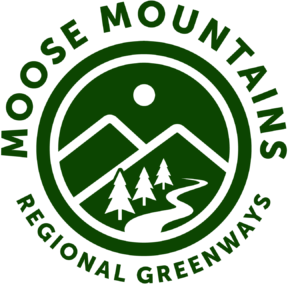‘Keep Talking about Climate Change’ says MMRG’s Annual Meeting Speaker Dr. Jennifer Jacobs
Thanks to Amy Gardner and Virginia Long for photos of MMRG's 2019 Annual Meeting.
More than a hundred area residents flocked to hear Dr. JenniferJacobs speak on climate change at the Annual Meeting of local land trust MooseMountains Regional Greenways (MMRG). The Inn on Main in Wolfeboro was thesparkling venue of this festive occasion, which also featured a silent auction,dinner, recognitions, a brief business meeting, and an update on MMRG’s currentconservation projects.
Jennifer is a Professor of Civil and Environmental Engineering at the University of New Hampshire and Founder and Director of The Infrastructure and Climate Network. She served as lead author for the Transportation Sector Chapter of the 4th National Climate Assessment (NCA4), released last November; chapters may be downloaded from nca2018.globalchange.gov/. On this occasion, Jennifer spoke on “2018’s Most Significant Climate Report and What It Means to New Hampshire.”
Although the title sounded weighty, the content of Jennifer's talk was highly accessible. Several audience members commented that she presented the material in easy talking points that they could pass on. Indeed, Jennifer's final message was that the most important thing people can do is to start talking about climate change instead of avoiding the topic, as do 75% of polled U.S. residents.
For example, snow is a common subject of conversation and important to the New England economy. Jennifer pointed out that not just snowfall but snowflakes are being affected by climate change. One memorable photo showed a seemingly engorged snowflake grown to excess size as it fell through alternating cold and warm atmospheric layers. Scientists want a better understanding of how such differently-shaped flakes affect snow melting, which in turn may impact our water resources and landscape. The public can assist in this research by participating in the Citizen Science X-Snow project.
Another example close to home is the recent decline in Easternwhite pines due to a native pathogenic fungus. A complex story links acombination of environmental factors: increased precipitation in the Northeast causedby the warming atmosphere allows the moisture-loving fungus to take hold while adepletion of forest soil nutrients caused by acid rain stresses the pines sothey cannot fight off the fungus. Pines swathed in brown and dying needles arethe result.
Jennifer also gave a timely reminder that the inevitable NH mud season has been exacerbated by increasingly extreme freeze-thaw cycles, produced by climate warming. Not only do these cycles affect residents’ good humor, they also impact trees and other plants whose early buds may freeze. Beech and red oak are particularly vulnerable; as a consequence, NH forests may transition to birch and conifer species that can better withstand such cycles.
MMRG’s Annual Meeting is an occasion for recognizing manyindividuals’ contributions. Vice Chair Lorrie Drake relayed the important accomplishmentsof former Executive Director Patti Connaughton-Burns, who recently steppeddown. Connaughton-Burns spoke in appreciation of MMRG’s many conservationpartners, including Southeast Land Trust of New Hampshire and Merrymeeting LakeAssociation, who helped make the Birch Ridge Community Forest project come tofruition. Interim Executive Director Dan Coons thanked the numerous dedicated volunteerswho serve on MMRG’s Board of Directors and town Conservation Commissions and helpat MMRG outreach events.
Landowners Victor Piekarski and Gloria Switalski were lauded by Dan for their easement donation, which allowed their WidowMaker Farm in New Durham to be conserved. The two received MMRG’s Conservationist-of-the-Year award, which also cited them for welcoming MMRG’s birdwatching and family nature groups onto their land, thus ‘helping ensure there will be a new generation of conservationists’.
MMRG’s Volunteer-of-the-Year award was bestowed on Milton residentPeg Hurd, who is a ‘dynamo’ member of MMRG’s Special Events Committee. RetiringDirector Emily Lord was recognized for her photography, social media expertiseand a youthful perspective. Long-time Board Treasurer Bruce Rich is alsoretiring. To honor him, Board member Kam Damtoft penned and performed ahumorous poetic recitation of Rich’s many contributions, from overseeing MMRG’sfinances to parking duty at MMRG’s annual festival.
Jennifer Jacobs commended MMRG, as well, for our ‘phenomenal work’. She pointed out that MMRG is already acting on goals set by the NH Wildlife Action Plan by taking resiliency and connectivity into consideration when prioritizing landscapes for conservation. Planning maps and conservation goals incorporating these criteria are part of MMRG’s Conservation Action Plan, available at www.mmrgnh.org.
MooseMountains Regional Greenways works to conserve and connect important waterresources, farm and forest lands, wildlife habitats, and recreational land inBrookfield, Farmington, Middleton, Milton, New Durham, Wakefield, and Wolfeboro.MMRG would like to thank D.F. Richard Energy for underwriting the event and businesssupporters Lilac Printing and Megan Henderson, Consulting Forester.
